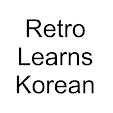Why we should read, especially in a foreign language
Reading, even in one's native language is a fantastic way to learn new words, expressions and even information. In modern times reading for pleasure has been long discarded and been replaced with reading to gain knowledge or to prove someone wrong. While this is great for have a broad knowledge of many subjects and being able to read deeply into a subject, this form of reading has it's disadvantages.
Many people have a diminishing passive vocabulary in their native language because let's face it, who wants to read something that's overly flowery or descriptive when we want the facts that we came to learn. On the opposite end of the spectrum, this can be a disadvantage of reading in a a foreign language because it is not so clear as to what is common language and what is overly flowery language that even natives may have trouble deciphering. This likely won't be too much of a problem as all the common words will be used far more often.
Reading in itself is simply the fastest way to pick up words for foreign language learners but also comes at the price of being quite tiring to do for long periods of time, which is why a lot of listening to and watching of content is highly recommended as they are a lot less intense and contain other advantages such as the sounds and inflection of the language.

![Talk to Me in Korean Hanja (Word Builder) reference list [Level 3-9] Talk to Me in Korean Hanja (Word Builder) reference list [Level 3-9]](https://blogger.googleusercontent.com/img/b/R29vZ2xl/AVvXsEg9ptC-wrfkQrHVRUmpRTramNsaWq8F97UIFsF-PSDaKip2xcCiL4qgi8ITeC3qXPoxCErGL-IVGcnRm3Tfacg3YU2TjNqLlYCHNmegeKboUsv3rFy9_oTe4ptadkNBebb_NalgrU3HFkAG/w640-h310/Talk-to-Me-in-Korean-Hanja-Word-Builder-Reference-List.JPG)
